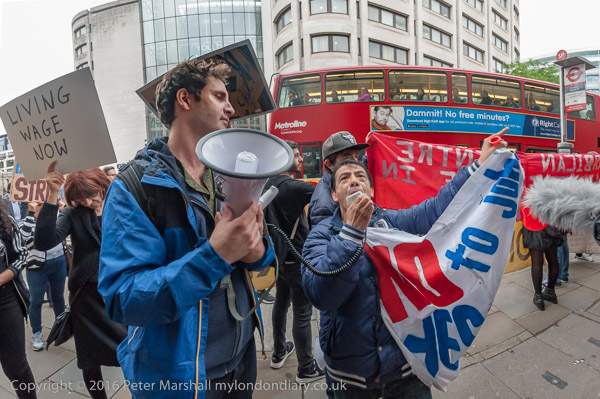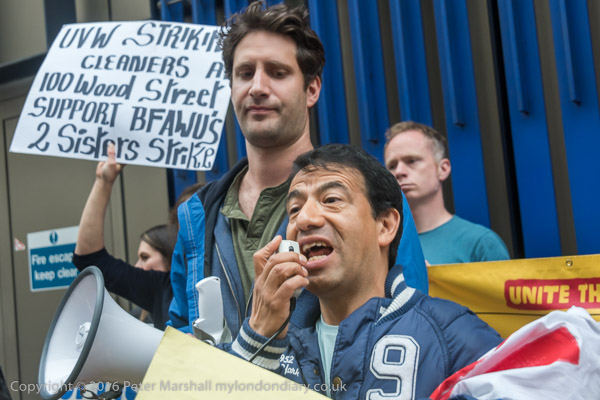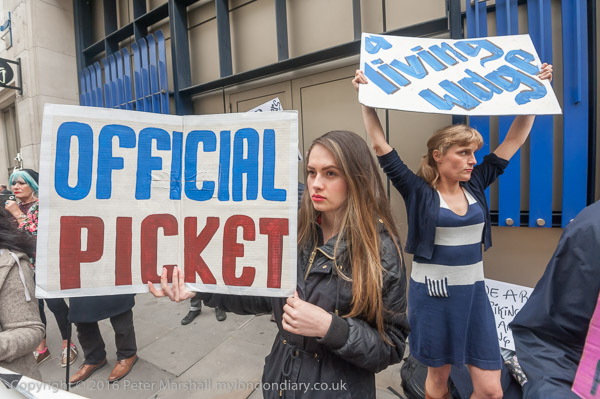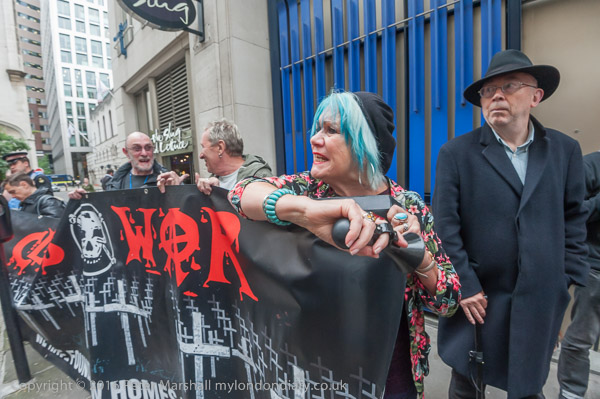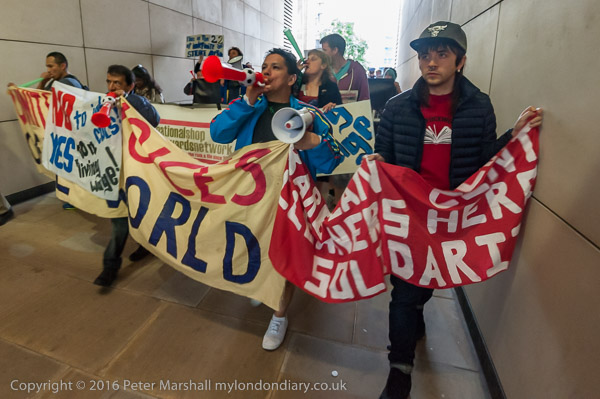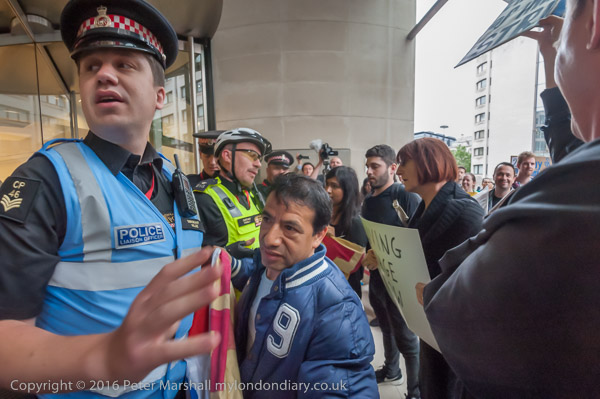Justice for LSE Cleaners: Cleaners at the London School of Economics, one of the UK’s most prestigious universities, had begun their campaign to get decent working conditions at the end of September 2016. On 2nd December there was a protest at the LSE in support of this.
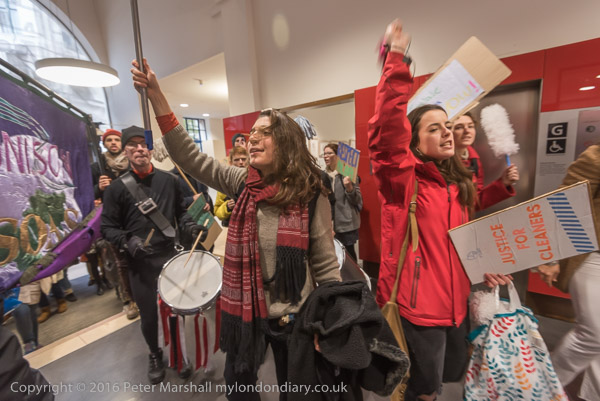
The LSE itself could not possibly have been seen to employ the cleaners under the exploitative terms and bullying management they were working under, but were turning a blind eye to what was happening to workers on their site who were employed under a contract between the LSE and cleaning company, Noonan.
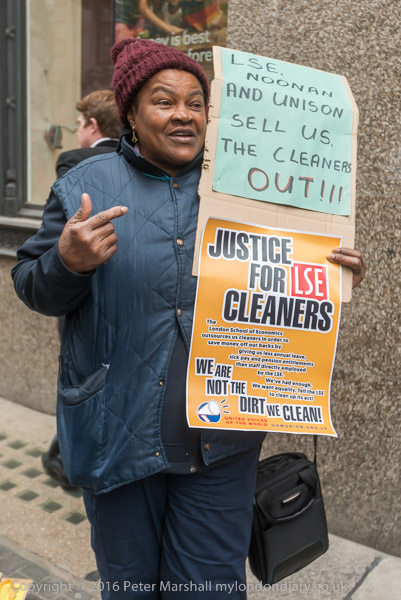
Outsourcing contracts such as these are always a bad deal for workers. At the LSE they were getting only the statutory minimum holidays, sick pay and pension contributions, while workers on similar grades directly employed by the LSE have more generous terms.
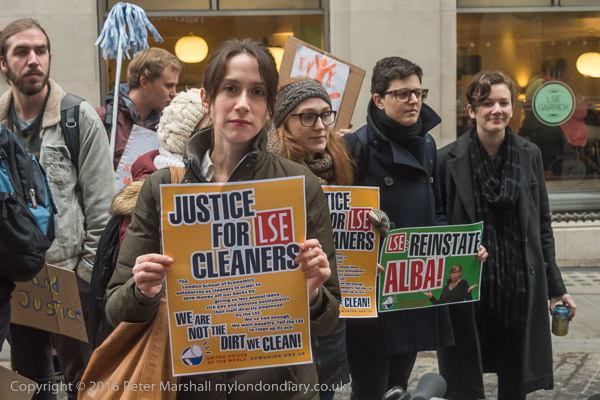
The cleaners had also lost rest facilities and were not allowed in the canteen with other workers. They were being exposed to dangerous chemicals without proper protection and were not allowed to use lifts to move heavy equipment between floors were are generally treated like dirt.
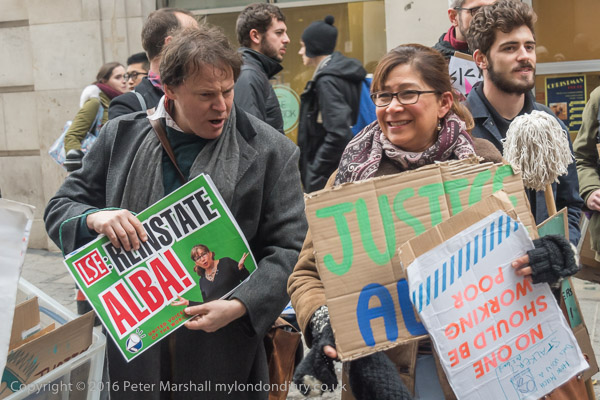
At the start of the campaign one of the cleaners, Alba Pasimo, had shocked the meeting by standing up and describing how she had been sacked this week by the cleaning contractor after 12 years of service at the LSE.
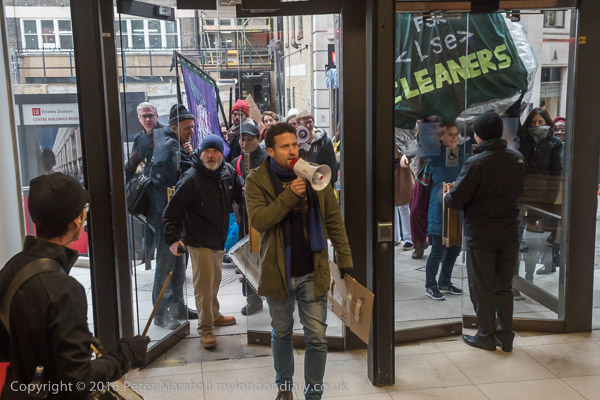
Their campaign, led by their union the United Voices of the World, was widely supported by LSE students, some teaching staff and others from the trade union movement.
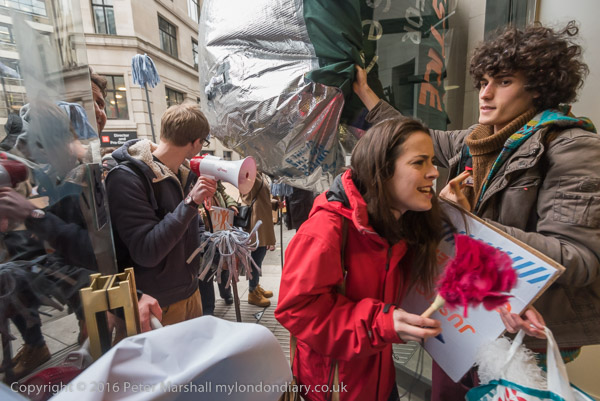
A series of protests, including this on December 2nd 2016, supported the campaign for the re-instatement of sacked cleaner Alba, better management with achievable workloads and the same conditions of service including sick pay, pensions and paid leave from contractor Noonan as those of equivalent grade staff directly employed by the LSE. They were also calling for union recognition of the UVW.
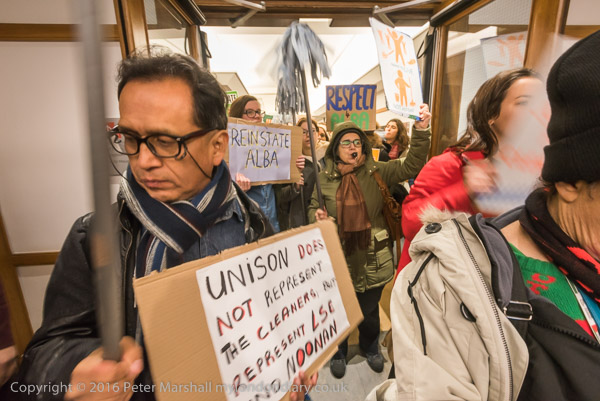
Considerable building work taking place at the LSE meant that the only direct route between the Old Building in Houghton Street and the rest of the campus was through that building, and after a rally outside, the protesters marched into the building, ignoring attempts by security staff to stop them, to make their way through.
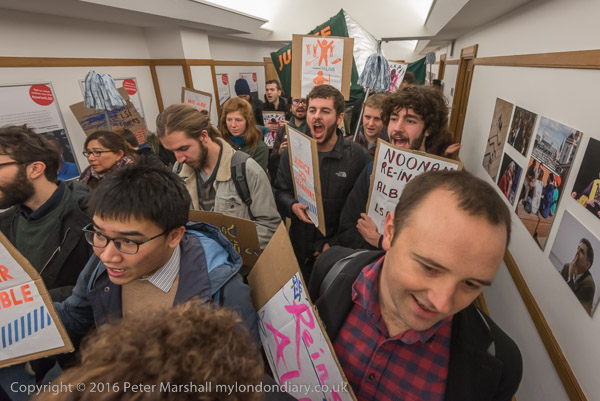
They marched around the rest of the campus and then to the offices used by both the LSE and the cleaner’s employers Noonan on the corner of Aldwych at No 1 Kingsway where they held a rally on the wide area of pavement.

They then went back onto the campus for a final rally outside the LSE Library, warning the LSE management that actions like this will continue until Alba is reinstated and the cleaners get an offer of equal treatment from Noonan and the LSE.

In August 2017 the UVW were “proud to announce that the LSE cleaners will be BROUGHT IN-HOUSE and become employees of the LSE from Spring 2018! This will ensure they get, among other things, 41 days annual leave, 6 months full pay sick pay and 6 months half pay sick pay, plus proper employer pension contributions of up to 13% of their salary.”

Alba had been reinstated following an industrial tribunal hearing in July 2017 which declared her “dismissal not only unlawful but profoundly and manifestly unfair.”. The UVW then stated “Alba was the 5th sacked cleaner we have got reinstated at the LSE in the last year.”
The UVW continues to fight for the LSE cleaners. In 2023 it forced the LSE to back down and reinstate a UVW strike leader and migrant cleaner from Colombia who had played an important role in a fight over the underpayment of holiday pay. And they forced the LSE to repay a significant part of the holiday pay which workers are owned, though a legal fight continues to get the rest. At the LSE and in many other workplaces and sectors the UVW continues to struggle for justice for low paid workers.
More on the protest on 2nd December 2016 at Justice for LSE Cleaners.
Flickr – Facebook – My London Diary – Hull Photos – Lea Valley – Paris
London’s Industrial Heritage – London Photos
All photographs on this page are copyright © Peter Marshall.
Contact me to buy prints or licence to reproduce.
